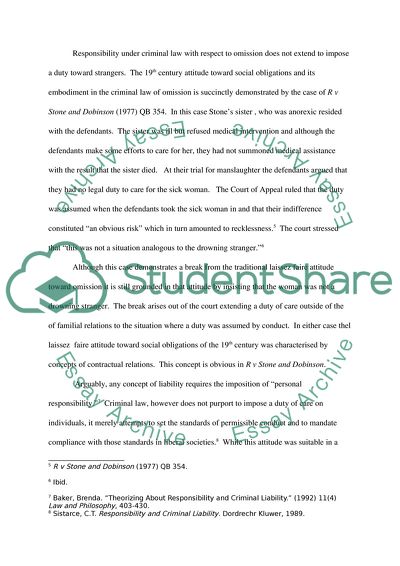Cite this document
(The Law of Omissions Case Study Example | Topics and Well Written Essays - 2500 words, n.d.)
The Law of Omissions Case Study Example | Topics and Well Written Essays - 2500 words. https://studentshare.org/law/1718443-the-law-of-omissions-is-too-narrow-reflecting-a-nineteenth-century-laissez-faire-attitude-to-social-obligations-which-should-be-consigned-to-history-discuss
The Law of Omissions Case Study Example | Topics and Well Written Essays - 2500 words. https://studentshare.org/law/1718443-the-law-of-omissions-is-too-narrow-reflecting-a-nineteenth-century-laissez-faire-attitude-to-social-obligations-which-should-be-consigned-to-history-discuss
(The Law of Omissions Case Study Example | Topics and Well Written Essays - 2500 Words)
The Law of Omissions Case Study Example | Topics and Well Written Essays - 2500 Words. https://studentshare.org/law/1718443-the-law-of-omissions-is-too-narrow-reflecting-a-nineteenth-century-laissez-faire-attitude-to-social-obligations-which-should-be-consigned-to-history-discuss.
The Law of Omissions Case Study Example | Topics and Well Written Essays - 2500 Words. https://studentshare.org/law/1718443-the-law-of-omissions-is-too-narrow-reflecting-a-nineteenth-century-laissez-faire-attitude-to-social-obligations-which-should-be-consigned-to-history-discuss.
“The Law of Omissions Case Study Example | Topics and Well Written Essays - 2500 Words”. https://studentshare.org/law/1718443-the-law-of-omissions-is-too-narrow-reflecting-a-nineteenth-century-laissez-faire-attitude-to-social-obligations-which-should-be-consigned-to-history-discuss.


